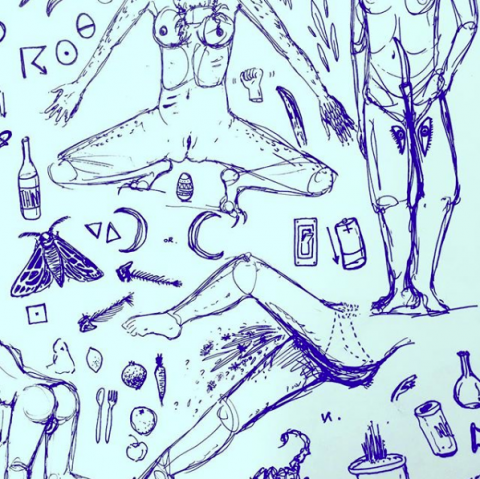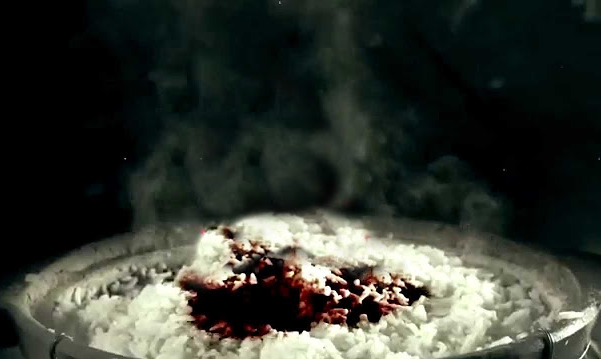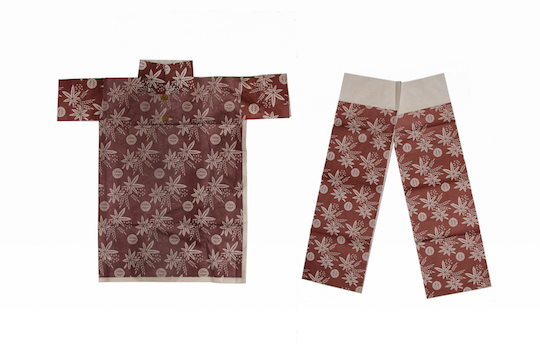A conversation on Marylyn Tan’s debut poetry collection, Gaze Back, plus a brief interview with the author

June 18, 2019
Gaze Back (Ethos Books, 2018) is a book that could be considered “difficult” anywhere in the world: exploding gender and sex norms, raunch-ifying beauty standards, overturning power dynamics, scandalizing institutional religion, rejecting the comfortable at every turn, and braiding in Singlish, Hokkien, found messages, unicode, and astrological glyphs. So how might this “difficult” book be read in its home context of Singapore, where the spaces of alterity can be tightly cramped, even criminal? And how might the book be read in its neighboring contexts around Southeast Asia, where cultural and personal visions of feminism and queerness can vary dramatically?
Wanting to explore Marylyn Tan’s groundbreaking work across various grounds/waters/countries, the Transpacific Literary Project gathered its first cross-border book club to read together and, in the space of a shared online document, shape a collective review. Following a conversation among readers Tania De Rozario (Singapore/Vancouver), Phyu Hnin Phway (Yangon/Singapore), Cyntha Hariadi (Bali), and Phina So (Phnom Penh) is a brief interview with Marylyn Tan in which she opens up her thoughts on spirituality, gender, and power.
You can read two poems from Gaze Back published in the Transpacific Literary Project, including translations into Bahasa Indonesia, Khmer, and Burmese.
In Indonesia, this book would need a “caution, extremely hot stuff” sticker on the cover. It can be dangerous. We don’t like truth here, especially an attempt to uncover it, done by a woman, who is not a traditional woman. In an increasingly religious country dominated by Islamic conservative beliefs that have successfully covered women’s bodies to repress what’s inside, they’d think Marylyn Tan is really a witch. For a minority like me (Chinese, Catholic on my ID), that’s cool. I’ve been needing someone who can crash any religious party here. They can’t kill all the witches, can they.
I believe that the majority of poetry readers in Cambodia are not yet ready for this collection, they might find some of the poems quite strange. As a nation, we are so used to traditional verses. When one’s writing does not follow those rules (like mine, for example), they are shamed publicly. They are labelled as damaging to the tradition of Khmer poetry. While I appreciate what Marylyn is exploring in her writing, I do think some of the poems are too far for my community—though “too far” is not to say something negative about the poetry.
I am guessing that many Singaporeans would find this book “blasphemous” because of the Christian references. Heavy metal band Watain recently got banned from performing there because a vocal religious minority complained about them being Satanists.
In terms of writing communities, I am pretty sure that small factions of the SingLit community will resent this book’s success because they aren’t ready for poetry that appropriates found text as “Sexts From The Universe”, and don’t have the patience to read through “computer-coded” poetry. That said, I know for a fact there are also writers who are extremely excited about it.
I don’t know whether I am able to speak for anyone outside of that community. I imagine queer women in Singapore might be a little defensive about the poem alleging racism, gender policing and body policing within the queer community…but that would be because it is all true.
Among a Burmese community of writers, because there’s been a range of poetic and avant garde influences, like conceptual poetry, visual poetry, lyricism, and different critical movements like post-structuralism, post-Marxism etc., there have been a number of poets exploring various aesthetic directions in the last decade. Some poets touch quite confidently on explicitly taboo subjects like incest, female sexuality and the usage of body parts in poems, especially the younger generation engaged in pursuing the experimental in both poetic subject matter and form itself.
In a way, new conceptual work is happening in Burma. But on the flip side, the way poets handle certain subjects is often not subtle enough for some sensitive contexts, and a chorus of criticism from readers and other writers comes out.
In general, the Burmese poetry scene is more open compared to the last decade. With that, I think Marylyn’s poems, especially those like “C:\Users\marylyn.tan\UnDocuments\Queer Bodies”, and “Unicode Hex” would be welcomed by readers who appreciate the conceptual and linguistic play at work, as well as those familiar with programming languages like Python. Though I assume this volume of readers would not be that vast. For some parts, like figuring “jesus as a teenage girl” and other content in “Cursing The Fig Tree,” I cannot imagine readers would be ready to take them in as poetic, since religion is somehow still regarded as sacred even if one is not practicing it.
Personally I’m at a stage where I don’t want to hear people talk about religion anymore, but I’m glad to listen to Marylyn. Her idea that Jesus was a girl strikes me as the greatest love that Jesus could ever receive from someone. No wonder “the magi have been seeking you for an eternity”.
And, as someone who neither shaves nor cares, I really enjoy the gender reversal of Samson and Delilah. I particularly love how this book examines and reimagines stories in the bible through a voice that is so unbiblical, unabashedly human. It opens eyes.
***
the evolved woman has
body in her hair but no
hair in her body
perempuan progresif
berbodi rambutnya tapi
nggak punya rambut pada bodinya
***
these hairs I’m keeping
I made them myself
with food that I paid for
bulu-bulu yang gua piara ini
gua tumbuhkan sendiri
dari makanan yang gua bayar sendiri
***
I laughed so often reading this book as I realized how garish my outlook on Jesus has been, while Marylyn Tan furiously strips that view away. I also chuckle with some sorrow to realize that the picture-perfect Singaporean career woman, the image of whom young urban women in developing countries like mine are looking up to, still has to “ngangkang” unhappily.
I was drawn to “Nasi Kang Kang”—and I wonder if it has anything to do with the word mengangkang (or ngangkang when spoken) in Bahasa Indonesia, meaning “to spread the legs”. We don’t have the myth of nasi kang kang here, but when it comes to rice, the repeated shove of farmer’s foot in the soft mud of padi fields is believed to symbolize a sexual act between man and earth.
Yes, the first word in the collection that brings me to google is “Nasi Kang Kang”. The myth reminds me of a similar belief of the Khmer people: I was once told by my teenage friend, who was one year older and reached puberty first, “You know you can drop a drop of menstrual blood into a drink and let your desired man drink it? He will fall for you forever.” Another myth about menstruation is that when you apply the blood to wipe clean your face, you will have a more charming one.
So the idea behind “Nasi Kang Kang” represents a regional belief, if not global, about how women are repeatedly told to mistrust their own abilities and determination, relying only on what their bodies can do. I remember the feeling of when my friend told me about the blood. I felt, as a Khmer slang puts it ‘ដូចគោស្រាំងទិច’—literally “like a cow stitched by bees”. It’s an expression for when one can understand nothing from a subject.
I feel that the line, “watering their wetlands to make sure they are wanted” also relates to this notion that women are told not to depend on their own experience, thoughts, intelligence, and confidence. I don’t think wetlands need watering to be wanted.
According to Marylyn in “Nasi Kang Kang”, “falling in love is a fistfight”. Falling in love with this book is also a fistfight, even if you are not punching back. This book wants to pick a fight and as a reader, you’re happy to go down. This book doesn’t give a fuck—about whether you approve of its subject matter, about whether it falls in line with prevailing traditions of poetry—and it earns that confidence. What is most exciting to me about Gaze Back is the fact that Marylyn’s gaze is not just a reciprocal look—it is a refusal to break eye contact. Her work challenges the ways in which society polices gender, language and bodies—and it does it in ways that are so unique and so eloquent. I’m not sure whether I’m going to be very useful in this conversation—I suspect I will mostly be fangirling!
Also, since I’ve quoted “Nasi Kang Kang”, I also just want to add that I really love that poem in particular for bringing so many things together—gender dynamics, women’s bodies, the internet, cultural beliefs, a very natural use of Singlish (a lot of English-language poems in Singapore that incorporate Singlish end up doing it in a way that feels very stilted—Marylyn’s doesn’t) and the fact that even her footnotes manage to be political in a way that is pointed and succinct. (i.e. in one of them, she refers to the “(predominantly Chinese) bastardisations of Malay words”).
What attracts me at first glance is the title Gaze Back for is constellation with the female gaze in Helen Cixous’s, “The Laugh of Medusa”. In this essay, Cixous highlights patriarchal power structures and the complexity of a female eros, asserted as a force of life and creativity. Her essay discusses how women’s bodies and sexuality have been repressed throughout history, suggesting how the female body could be a medium of communication and transcendence. I think about how the Medusa’s authority was a fearsome and dominant power over men and women alike.
The concept and myth of “Nasi Kang Kang” it seems, are immensely influenced by patriarchal standards and not by a fair and equal gender lens. I think “Nasi Kang Kang” might be linked to another common belief that a woman’s menstrual blood can turn men into stone, a way of controlling the husband. One of the big and shared challenges throughout history is failing to question the validity of myths, often based in male-created fears that influence everyday aspects of life.
What is most unforgettable to me about the book is how I can feel the voices of the author and sense a shared experience with her, a rebellious need to defy expected beauty standards and promote gender equality.
While reading Gaze Back, I get a strange and strong desire to pick up a book of poetry from a young male poet, a book I bought over a year ago and still haven’t read a single page of. I want to read these two texts side-by-side in an attempt to compare the similarities and differences. This other book follows the trend of Khmer traditional poetry and shares the same voices expressed over a century ago, like Krom Ngoy, the popular 19th century Khmer poet. His book focuses on advising people how to behave. Do this and don’t do that! So, not only does contemporary Khmer poetry not represent the voices and struggles of Khmer women today, but it also instructs them to behave according to the ‘Women’s Code of Conduct’ written by a Khmer king a few centuries ago. Although the controversial code of conduct has been removed from the public school curriculum, there is research to show how it still impacts teachers and students alike, influencing how they teach and view female students. It’s very disappointing.
I want to ask: I come from a society so obsessed with rules and normality (so this question might not be relevant) but I want to ask how do you cope with criticism as a woman poet? I ask this question because as a woman who writes poetry that does not follow Khmer traditional rules, I’m often subjected to the label of ‘the wrongdoer’.
Marylyn Tan:
More questions for Marylyn:
When you were in New York City for the LAMBDA awards, you mentioned being struck by something like historical time, by the legacy and tradition that LGBTQ+ writing occupies in the US literary world. Can you share a bit more about how you perceive the time and space of gay writing and its recognition in Singapore?
Honestly, there has been an exponential surge in LGBTQ+ writing, especially in the last 10-15 years. 2008 was the first time I got my hands on local queer literature, which was by one of Singapore’s most established writers, Alfian Sa’at. He, Cyril Wong, and Ng Yi-Sheng were the only (cis, male) gay writers I knew of. Nearly 11 years later, the spoken word scene, for instance, seems to house as many, if not more, queer writers as cishet ones, and the queer literary arts in Singapore are attracting new blood all the time. The most seminal texts in the Singaporean LGBTQ canon, for me, are Johann S. Lee’s Peculiar Chris (frequently touted by many as THE FIRST gay novel in Singapore), and Eleanor Wong’s Invitation to Treat, a lesbian trilogy of plays (1993-2003). Space too plays a huge part in how Singaporean writing is received-Singapore Unbound is doing good work in connecting Singaporean writers located all over the world, specifically. There is a notion that one is only ever celebrated in Singapore when one has achieved success elsewhere (meaning, I suppose, in the Western world) and institutions have no choice but to acknowledge your existence. Perhaps that is doubly true for the inconvenient existence of queer individuals?
There are just so many ways (and no way at all) to talk about ‘the feminine’. You use the word ‘grotesque’ to call the feminine in your writing and there is a stream of negation, of refusal, of deviation, of turning away that runs throughout the book. I wonder about if/how your study and practices of witchcraft and the occult have given you language to think about gender. Maybe you can walk through a bit of your journey of cultivating a spiritual-gender consciousness?
A lot of the witchcraft that resonates calls on being disobedient to hierarchical structures and institutional bulwarks of power, and a lot of the figures I work with or admire have a chaotic quality to them-think Kali, Eris or Discordia, Lilith and Baba Yaga. Many of these archetypal women/goddesses are ambiguously portrayed (your typical Mother/Hag duality), which is so often telling of the culture of patriarchy and obedience to said patriarchy that describes them. Lilith and Baba Yaga, especially as they are portrayed as demon witch archetypes who reputedly eat children, are powerful in their monstrous nature. And in speaking to that wild and sometimes violent nature, one inevitably harvests a language of desire, of autonomy, of empowerment-which is undoubtedly fearsome to some others. There is also power in appearing grotesque, whether it be covered in the blood of your enemies, tongue lolling, or being so hideous that the narrative makes a point to describe how disgusting you are.
You mention power and power dynamics in your after-note and I want to press into this word a bit. What is your personal definition of power? “Is male desire disempowering?”—I want to hear more about what you mean in asking. What is the relationship between power and desire? In your mind, is the goal to have more power or to divest from all forms of power?
The previous question, I think, ties in with this one—there is a certain emancipation in being upfront with the hideous parts of yourself. If male desire is disempowering, it is because we are not inured to male fantasies and inevitably scrutinize ourselves with the male gaze. Once we are made aware that we are being watched, it is hard, I think, not to turn the lens upon ourselves and see if we are living—or not living—up to that standard of desire and objectification. A study published in the European Journal of Social Psychology reported that both men and women perceive men’s bodies as global wholes, i.e., as people, but more easily identified women as discrete body parts. We learn to section/butcher ourselves.
My definition of power is very much influenced by readings of Foucault. As such, I think of power in terms of something diffuse, continuously enacted and endlessly coexisting with different forms of itself. Following which, I don’t think that one can extricate power from human interaction and relations. Power dynamics will always exist, as well as the impetus to control them. Desire is another of those dynamics—one might think, as per my first assertion, that male desire is disempowering. However, there are plenty of women for whom male desire is the only significant form of power and control they can reliably wield in a male-dominated world. There are also men who feel resentful or angry because they believe that desiring women, and yet not being able to possess them in the way that they desire, shackles them and is a source of misery in their life.
More importantly, I think, is to understand the underpinnings or workings of power that we are reproducing or that others enact upon our bodies and furnish ourselves with the knowledge necessary to give ourselves autonomy in thinking and acting. Just as there is power in forcibly controlling others, one may reclaim some of that power by knowing the means and technology being used to control them, and in deciding how one wishes to react to such an enactment of power.



